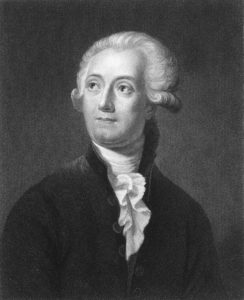Antoine Lavoisier Biography: Widely credited as the ‘father of modern chemistry’, Antoine Lavoisier was a French chemist and a central figure in the 18th- century chemical revolution. He formulated a theory of the chemical reactivity of oxygen and cowrote the modern system for the nomenclature of chemical substances.
A short Biography on world Famous Scientists and Their Inventions.

Antoine Lavoisier Biography, Inventions, Education, Awards and Facts
After having a formal education in law and literature, Lavoisier studied science under some of the most well-known figures of the day. He helped develop the first geological map of France and the main water supply of Paris in 1769 at a young age of 25. This earned him a membership of the Royal Academy of Sciences in 1768. The same year he managed to purchase a part-share in the ‘tax farm’, a private tax collection agency.
Lavoisier started working on such processes as combustion, respiration and the calcination or oxidation of metals in 1772. His influential research helped discard the old prevailing theories which dealt with absurd combustion principle called Phlogiston. He gave modern explanations to these processes. His concepts about the nature of acids, bases and salts were more logical and methodical. Lavoisier introduced a chemical element in its modem sense and demonstarted how it should be implemented by composing the first modern list of the chemical elements.
His revolutionary approaches helped many chemists realise the fundamental processes of science and implement the scientific methods. This proved to be the turning point in scientific and industrial chemistry. Lavoisier was hired by the Government to continue his research into a number of practical questions with a chemical bias, for instance the production of starch and the distillation of phosphorus.
Louis XVI arranged the Gunpowder Commission in 1775 to ameliorate the supply and quality of gunpowder and cope up with the inadequacies which had affected France’s war efforts. Lavoisier, as a leader of the Commission, presented its reports and monitored its implementation. He dramatically increased the output so that France could even export gun powder, which turned out to be a major factor in France’s war effort in the Revolution and the Napoleonic wars.
Lavoisier also applied his scientific principles to agriculture when he bought some land at Frenchines, near Blois, central France. His efforts bore fruit after short span of time and he described his observations in the 1788 book “Results of some agricultural experiments and reflections on their relation to political economy”, which is considered highly influential in agriculture and economics.
Regardless of his extraordinary services to the nation and to mankind, Antoine Lavoisier’s connections to the fax agency proved to be fatal to him, for he died in May 1794 during the reign of terror. The Revolutionaries guillotined some 28 tax farmers, including Lavoisier and his father-in-law.
